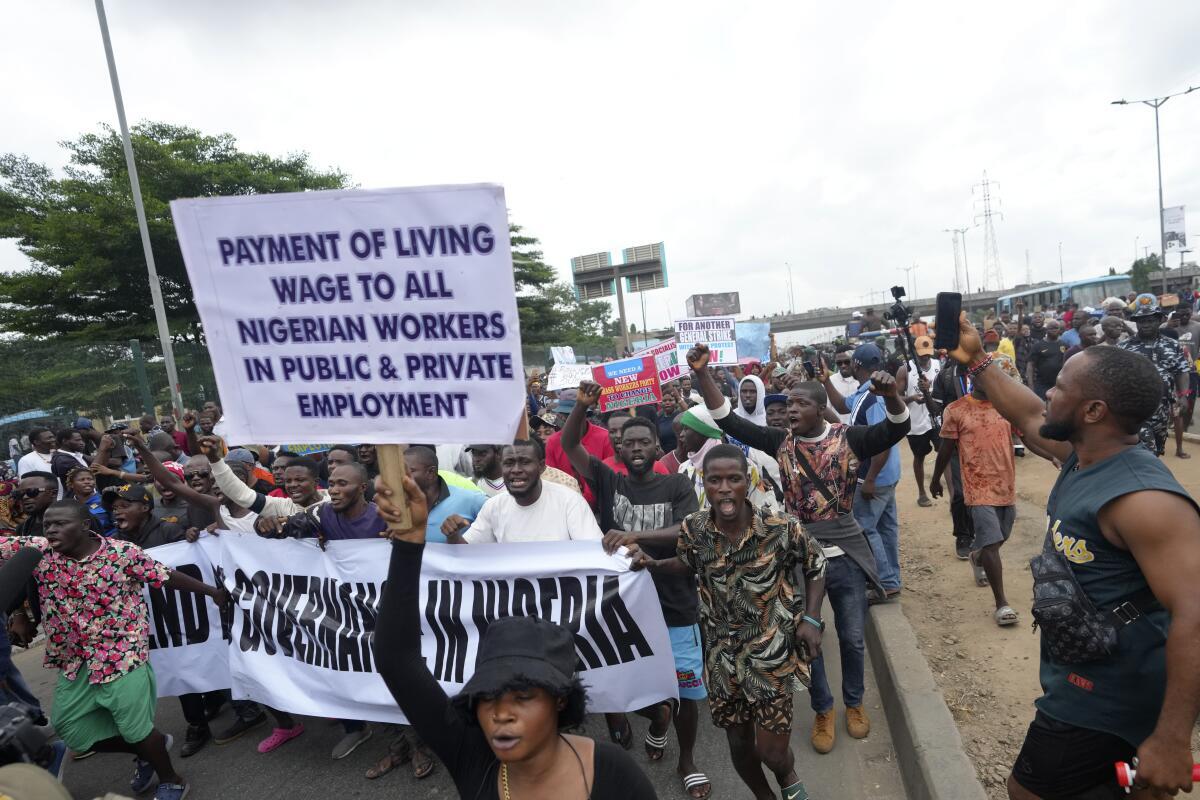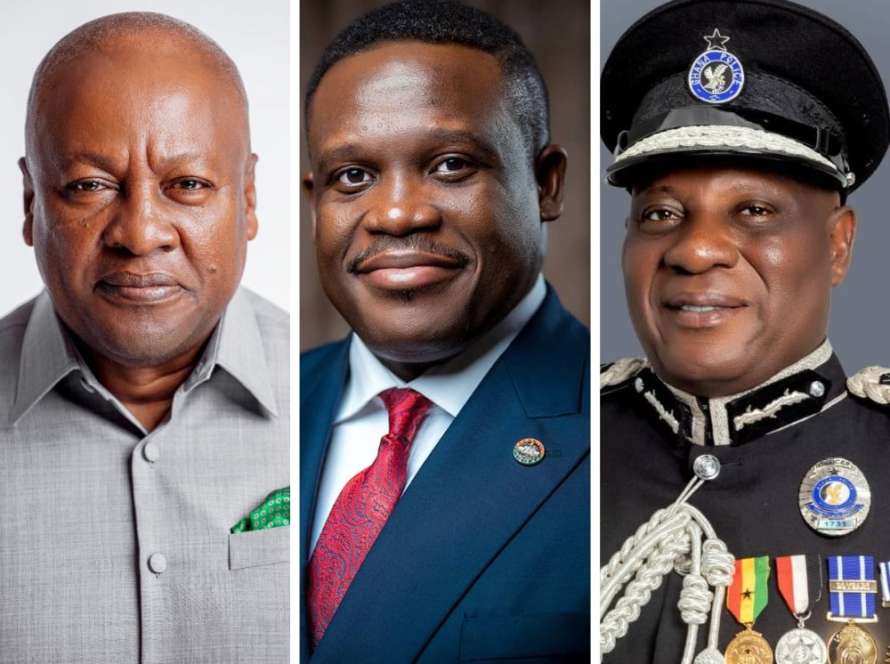The Media Foundation for West Africa (MFWA) condemns the deadly repression of the protests in Nigeria as well as the widespread attacks on the media and urges the authorities to take measures to end the mayhem.
The crackdown on the #EndHunger nationwide protest, which started on August 1, 2024, has so far claimed 17 lives, according to a report by the Punch newspaper which provides the following details: one person each shot dead in Abuja and Kano; two killed in Jigawa, six gunned down in Niger, while four died in Borno with three deaths recorded in Kaduna.
Reports say the police used tear gas and shot live bullets to disperse thousands of youth in various parts of the country. Some security officers attacked the protesters from helicopters as the situation escalated into attacks on government buildings and pockets of looting. In Abuja, the authorities directed the protesters to quit the streets and gather at the Moshood Abiola National Stadium. However, the gathering was violently dispersed by the police with tear gas and non-lethal gunshots after the protestors resisted the police directive to hold their rally inside the stadium.
Some accounts say the authorities provoked a clash by organising bus-loads of rival protesters chanting their support for the government.
Later reports quoting Amnesty International sources put the death toll among protesters at 21 after five days of clashes.
Amidst the bloody chaos, journalists have also been at the receiving end of attacks and abuse, both at the hands of state security operatives and members of the public. These attacks and abuses have been in the form of physical assault, harassment and denial of access to cover the protest, among others.
Several organisations including the International Press Center (IPC), the national partner of the MFWA, have chronicled about a dozen attacks. A statement from the IPC released on August 1, 2024, said at least 21 journalists were attacked or abused across at least five states – Lagos, Kano, Abuja, Cross River and Delta on the first day of the protests.
According to the press release by the IPC, in Kano State, Ibrahim Isah, a correspondent of TVC News was physically assaulted by hoodlums who were with weapons while covering the protest. He sustained injuries on his hand.
Also, a vehicle belonging to television station, Channels TV, which was conveying about eleven (11) journalists, including TVC News Correspondent, Ibrahim Isah, was vandalized. The journalists onboard were traumatized by the unfortunate incident.
In the Federal Capital (FCT) Abuja, Yakubu Mohammed of Premium Times was attacked and injured by Police officers who hit him with the butt of their gun and their batons and caused injuries to his head while covering the protest. Other accounts say the journalist’s camera was confiscated and later returned damaged.
A photojournalist with Daily Independent, Jide Oyekunle, was arrested and his mobile phone was seized by Police officers.
In Cross-River State, hoodlums in Calabar, launched an attack on journalists, seriously injuring Nigerian Tribune reporter, Joseph Abasi-Abasi. The hoodlums targeted an 18-seater bus belonging to the Nigeria Union of Journalists (NUJ) that was transporting food items to the Ernest Etim Press Centre in Calabar.
Another journalist, Jonathan Ugbal of the Cross River Watch was arrested by the Police, beaten and taken to an unknown destination in Calabar. He was later released.
In Delta State, journalists Matthew Ochei of the Punch Newspaper, Monday Osayande of the Guardian Newspaper and a Pointer reporter called Lucy were attacked by alleged pro-government protesters who arrived at the location of the protest and chased away protesters in the presence of security operatives. The journalists were taking pictures and conducting interviews when the pro-government protesters smashed their gadgets and attacked them.
“It is regrettable that the incidents were recorded despite calls by IPC and other media groups on stakeholders and security agencies to ensure a safe environment for journalists covering the protests,” said Melody Akinjiyan, The Press Freedom Officer of IPC.
In an August 2 statement signed by its Deputy Director of Journalism Programme, the Centre for Journalism Innovation and Development (CJID) also condemned the serial violence against the media.
It cited an incident which occurred on July 31, the eve of the #EndHunger protests. News Central Television reporter Bernard Akede was doing a live throwback broadcast at the site of the Lekki Toll Gate killings in Lagos during the #EndSars protests of 2020, when the police accosted the journalist, disrupted his live broadcast and eventually stopped him.
The CJID also reported other attacks on the media in Abuja, corroborating and complementing the reports by IPC. Among these was the arrest of Kayode Jaiyeola, a photojournalist with Punch Newspaper, by a police officer attached to the National Security Adviser, Nuhu Ribadu. Jaiyeola was handed over to members of the FCT Police Command, who detained him.
News Central Television journalist Mary Adeboye was assailed with teargas by police officers while covering the protest in Abuja.
In Maiduguri, Borno State, the CJID reports that nine staff members of Radio Ndarason International (RNA), including the editor-in-chief, Head of Programmes, and Nigeria Office Director, were arrested. Their arrest and detainment are believed to be connected to an earlier visit by the State Commissioner for Information and Internal Security, who was at the radio station earlier in the morning. The journalists are now being detained at the police headquarters in Maiduguri
The MFWA associates itself with the outrage expressed by the IPC and CJID and joins these organisations in urging the authorities in Nigeria to call the security agencies to order. This development is totally unbecoming of Nigeria which is supposed to be a democracy. Also, we appeal to the protest organisers to ensure an end to the excesses being committed by some protesters.
Finally, when the dust settles, we will expect the government of President Ahmed Bola Tinubu to investigate the killings and bring the perpetrators to book.






